Are you still relying on traditional paper-based medical records in your small practice? Have you ever wondered if there’s a better way to streamline your clinic’s operations and enhance patient care? Well, get ready to discover the power of small practice EMR software!
Small practice EMR software, also known as electronic medical records for small practices, offers a comprehensive solution to transform your clinic into a modern, efficient, and patient-centered healthcare facility. But how exactly can it benefit your practice? Let’s dive in and explore the possibilities.
Key Takeaways:
- Small practice EMR software enhances patient care and clinic efficiency.
- Customizable EMR systems are tailored to meet the unique needs of small practices.
- Cloud-based EMR software seamlessly integrates into the clinical workflow.
- Small practice EMR software elevates patient care while remaining affordable.
- Electronic medical records simplify documentation and record-keeping for small practices.
Tailored Solutions for Small Practices
When it comes to managing your small practice, you need software that understands the unique needs of your clinic. That’s where customizable EMR systems come in. These small practice healthcare software solutions are designed specifically to cater to the size and requirements of your practice, empowering you to streamline your workflow and improve patient outcomes.
A customizable EMR system lets you change the software to fit your clinic’s needs. You can customize templates, add fields, or connect other apps. These systems are flexible so you can make the practice work better. By matching the software to your workflows, you can boost efficiency and productivity.
A big benefit of using customizable EMR systems is focusing on your patients. With software made for small practices, you can ensure every feature works for your patients and staff.
By using small practice healthcare software, you can automate tasks like scheduling and billing. This lets your team focus on patient care. It improves patient happiness and lets you give personal, efficient care to stand out.
Why use a one-size-fits-all solution? A customizable EMR system is made for your small practice’s needs. You can optimize workflows, boost outcomes, and elevate your clinic’s success.
Seamless Clinical Workflow Optimization
See how cloud-based EMR software can transform your clinical workflow and streamline operations. Its user-friendly platform fits into your daily routines, enhancing team communication, collaboration, and productivity.
Working in healthcare requires being fast and efficient. Cloud-based EMR software helps with this. Its design makes it easy to use and find patient records quickly. This allows you to make decisions faster. With just a few clicks, you can see patient data, medical history, and update treatment plans. This helps provide continuous care.
Healthcare professionals need to work together for the best patient care. Cloud-based EMR software allows easy sharing of patient records. Whether at the office, hospital, or traveling, you can securely share information with colleagues. You can discuss cases and plan treatments together. This teamwork improves the overall quality of care.
Additionally, cloud-based EMR software is user-friendly and increases productivity. There is no need for paperwork, lowering errors and improving efficiency. Tasks like e-prescriptions and electronic referrals are automated, saving time for direct patient care.
Optimize Your Clinic: Small Practice EMR Software
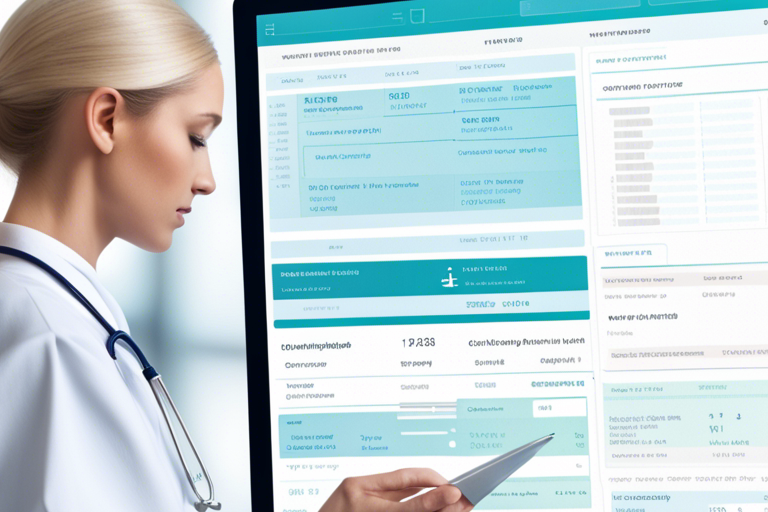
Are you a healthcare provider looking to streamline your clinic’s electronic medical records system? Imagine a practice where patient information flows effortlessly, appointments are managed seamlessly, and charting becomes a breeze.
In today’s fast-paced healthcare environment, small practice EMR software can be a game-changer. With the right tools, you can optimize your clinic’s efficiency, improve patient care, and enhance overall practice management. But with so many options out there, how do you choose the best fit for your clinic?
In this blog, we dive deep into the world of small practice EMR software. We’ll explore key features to look for, benefits of implementation, and how to overcome common challenges. Stay tuned as we uncover insights to help you make an informed decision and propel your clinic towards success.
Short Summmery

- Understand the importance and benefits of implementing small practice EMR software for optimizing clinic efficiency and enhancing patient care.
- Learn how customizable templates and user-friendly interfaces can streamline clinical workflow and improve overall practice management.
- Discover the significance of patient portals and accurate medical information entry in small practice EHR systems for better administrative functions and medical record management.
- Gain insights into selecting the right EHR vendor and maximizing the potential of practice management software to propel your clinic towards success.
1. Importance of EHR Software for Small Medical Practices

1. **Why EHR Software is Crucial for Small Medical Practices**
Addressing Administrative Challenges
Small medical practices often face numerous administrative tasks that can be time-consuming and prone to errors. Implementing EHR software streamlines these processes and enhances overall efficiency. By automating tasks like patient scheduling, billing, and record-keeping, staff can focus more on delivering quality patient care.
Enhancing Patient Care and Information Accessibility
EHR software improves the clinical workflow by providing healthcare professionals with easy access to essential patient information. This includes medical histories, test results, lab reports, and more. With a user-friendly interface and customizable templates, small practices can deliver better patient care and ensure seamless flow of information across different departments.
Reducing Manual Data Entry and Errors
Manual data entry is a common source of errors in medical practices. EHR systems help minimize these errors by allowing for accurate capture and storage of patient records. This not only improves data accuracy but also saves time that can be redirected towards more valuable tasks.
Integration with Patient Portals
Patient portals play a vital role in modern healthcare by enabling patients to access their medical records, communicate with healthcare professionals, and schedule appointments online. EHR software that includes patient portal functionality enhances patient engagement and satisfaction, ultimately leading to improved outcomes.
The Financial Benefits of EHR Implementation
In addition to improving patient care, EHR software can have a positive impact on the financial health of small practices. Features such as automated billing, coding assistance, and claims processing help reduce revenue cycle inefficiencies and increase reimbursement rates.
Valant’s EHR: A Comprehensive Solution
Valant’s EHR system stands out as a top choice for small medical practices seeking to optimize their clinical and administrative functions. With Valant’s user-friendly interface, customizable templates, and robust features, healthcare professionals can unlock the full potential of their practice and focus on what matters most – delivering exceptional care to their patients.
**Key takeaway:**
Implementing EHR software is essential for small medical practices as it enhances administrative efficiency, improves patient care, reduces errors, and provides financial benefits. Valant’s EHR system offers a comprehensive solution tailored to the unique needs of small practices.
2. Enhancing Clinical Workflow with EHR System
 Select an Image
Select an Image
****
In today’s fast-paced medical landscape, having an efficient Electronic Health Record (EHR) system is essential for optimizing clinical workflow and delivering top-notch patient care. Let’s delve into the key aspects of how an EHR system can enhance the operational efficiency of a small medical practice.
**Streamlined Patient Information Management**
One of the primary benefits of using an EHR system is its ability to centralize patient information. By having all relevant data, from medical history to test results, stored in one secure digital location, healthcare professionals can access it with ease. This eliminates the need for manual data entry, reducing the risk of errors and ensuring that accurate information is readily available when needed.
**Customizable Templates for Improved Efficiency**
EHR systems offer customizable templates that can be tailored to suit the specific needs of a small practice. These templates streamline administrative tasks such as charting and documentation, allowing healthcare professionals to focus more on providing quality care to patients. With a user-friendly interface, navigating through patient records becomes effortlessly smooth, leading to a seamless flow of information within the practice.
**Empowering Better Patient Care**
By leveraging the capabilities of an EHR system, small practices can optimize their clinical workflow to deliver better patient care. From quick access to vital medical information to instant lab results retrieval, healthcare professionals can make informed decisions promptly, ensuring that patients receive the attention they deserve. This not only enhances overall efficiency but also contributes to better health outcomes for patients.
**Quote:**
*”Implementing an EHR system is not just about digitizing data; it’s about transforming the way healthcare is delivered, empowering providers to deliver personalized care efficiently.”*
**Key takeaway:**
Enhancing clinical workflow with an EHR system streamlines patient information management, improves efficiency through customizable templates, and empowers better patient care, ultimately optimizing the operational efficiency of small medical practices.
3. Benefits of Patient Portals in Small Practice EHR Systems
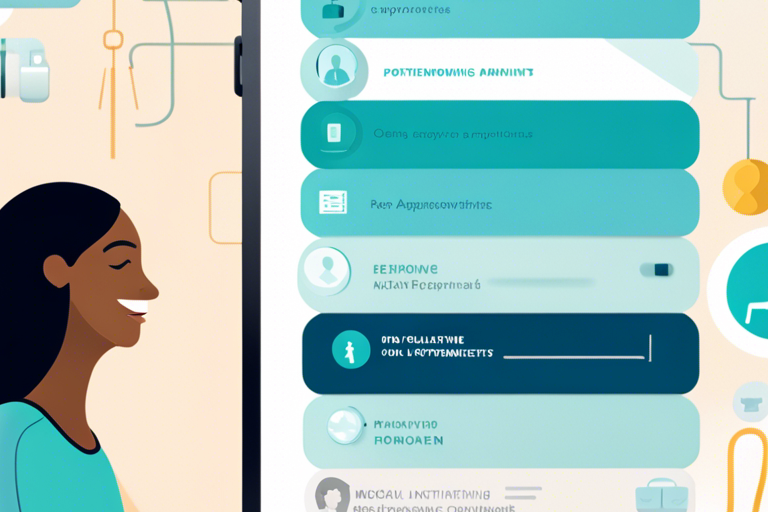 Select an Image
Select an Image
###
In the realm of small practice Electronic Health Record (EHR) systems, the integration of patient portals offers a multitude of advantages aimed at enhancing the overall patient experience and optimizing clinical workflows.
#### Enhanced Patient Engagement
Patient portals empower individuals to take an active role in managing their healthcare journey. By granting access to personal health information, appointment scheduling, and secure messaging with healthcare providers, patients feel more engaged and in control of their well-being.
#### Streamlined Administrative Functions
Patient portals streamline administrative tasks by allowing patients to update their medical history, insurance information, and contact details digitally. This reduces the burden of manual data entry on staff and ensures that patient records are always up-to-date.
#### Improved Clinical Workflow Efficiency
With patient portals, healthcare professionals can easily share test results, medical reports, and treatment plans with patients in real-time. This seamless flow of information fosters better collaboration between providers and patients, leading to enhanced clinical decision-making and improved patient outcomes.
#### Better Patient Care Delivery
Patient portals facilitate better patient care delivery by enabling healthcare professionals to provide personalized care plans, educational resources, and medication reminders directly to patients. This proactive approach enhances patient engagement and adherence to treatment plans, ultimately resulting in better health outcomes.
#### Increased Accessibility to Medical Information
Patient portals offer patients convenient access to their medical records, lab results, and billing information from anywhere, at any time. This easy access to crucial medical data empowers patients to make informed decisions about their health and promotes transparency in the healthcare process.
#### Customizable Templates for Specific Needs
Small practice EHR systems with patient portals often feature customizable templates that cater to the unique needs of different specialty practices, such as mental health, physical therapy, or general medicine. This flexibility allows providers to tailor the system to their workflows and ensure efficient documentation of patient information.
#### Quote:
“Patient portals in small practice EHR systems are transformative tools that bridge the gap between patients and providers, creating a collaborative environment for improved healthcare delivery.”
💡 key Takeaway: Patient portals play a vital role in enhancing patient engagement, streamlining administrative tasks, improving clinical workflows, and ultimately fostering better patient care delivery in small practice EHR systems.
4. Customizable Templates for Efficient Patient Record Management
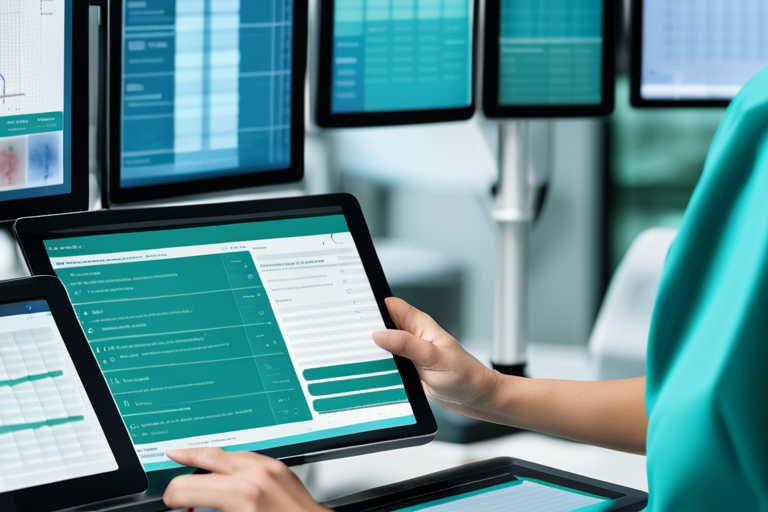 Select an Image
Select an Image
##
### Streamlining Patient Information
Utilizing customizable templates within your small practice EMR software can significantly enhance the efficiency of managing patient records. These templates allow you to tailor the documentation process to the specific needs of your practice, ensuring a seamless flow of information and improving overall productivity.
### Tailored for Different Specialties
By incorporating customizable templates, medical professionals can create unique templates for different specialties or conditions. This customization ensures that the documentation process caters specifically to the needs of each patient group, leading to better patient care and outcomes.
### Eliminating Manual Data Entry
Customizable templates can eliminate the need for extensive manual data entry by pre-filling common data points based on the template selected. This not only saves time but also reduces the risk of errors in patient information, ultimately enhancing the quality of care provided.
### Enhancing Clinical Workflow
The ability to customize templates allows for a more efficient and structured clinical workflow. Healthcare professionals can access patient information quickly and easily, enabling them to make informed decisions promptly and deliver the best possible care to their patients.
### Quote:
“Customizable templates empower small medical practices to tailor their documentation processes to their unique needs, ultimately optimizing patient record management and enhancing overall efficiency.” [HealthTech Magazine]
💡 key Takeaway: Customizable templates in your EMR software can streamline patient information, tailor documentation for different specialties, eliminate manual data entry, enhance clinical workflow, and ultimately improve patient care and overall efficiency.
5. User-Friendly Interface for Improved Patient Care
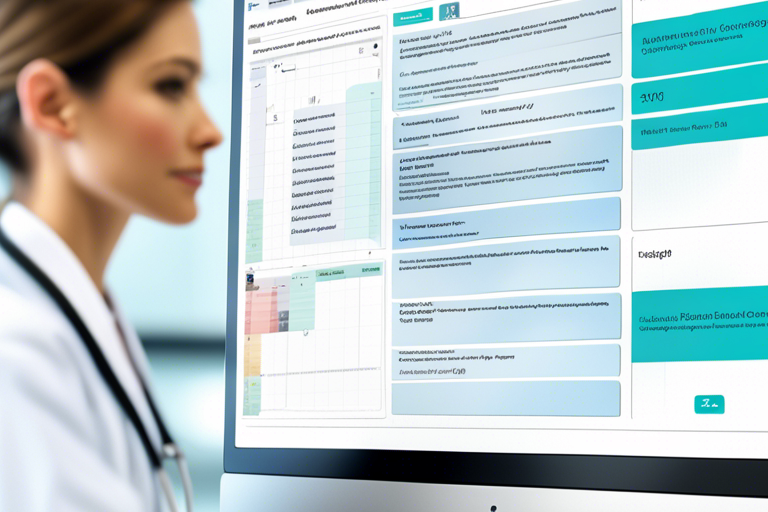 Select an Image
Select an Image
Introducing an electronic health record (EHR) system with a user-friendly interface can significantly enhance the overall efficiency and quality of patient care within small medical practices. Let’s delve into how a user-friendly interface promotes better patient care and a seamless flow of information.
### Enhancing Clinical Workflow with Intuitive Design
A user-friendly interface simplifies the clinical workflow by providing healthcare professionals with an intuitive design that streamlines patient information management. By minimizing complex processes and incorporating customizable templates, the EHR software reduces manual data entry tasks and allows for easy access to critical medical history, test results, lab reports, and more.
### Empowering Patients with a Patient Portal
Patient portals integrated into the EHR system offer patients the convenience of accessing their health information online. This feature not only promotes patient engagement but also enables individuals to actively participate in their care by reviewing medical records, scheduling appointments, and receiving lab results in a secure manner.
### Reducing Administrative Burden through Automation
An EHR system with a user-friendly interface automates administrative tasks such as medical billing, appointment scheduling, and documentation, allowing healthcare professionals to focus more on delivering quality care to patients. The intuitive design minimizes the learning curve, enabling staff to maximize the software’s capabilities and efficiency.
### Promoting Better Communication and Collaboration
The user-friendly interface fosters better communication and collaboration among healthcare team members by facilitating the seamless exchange of information. With features that enable secure messaging, task assignments, and shared documentation, the EHR software enhances teamwork and coordination, leading to improved patient outcomes.
### Harnessing Technology for Enhanced Patient Experience
By investing in a user-friendly EHR system, small medical practices can leverage technology to its full potential, providing patients with a modern and personalized healthcare experience. The software’s ease of use and accessibility ensure that healthcare professionals can deliver timely and accurate care, ultimately enhancing patient satisfaction and loyalty.
“It’s essential for small medical practices to prioritize the user-friendliness of their EHR systems to optimize patient care and streamline practice operations.”
💡 key Takeaway: A user-friendly interface in EHR systems is crucial for small medical practices to improve patient care, streamline workflows, and enhance overall efficiency while promoting better communication and collaboration among healthcare professionals.
6. Streamlining Administrative Tasks with EHR Software
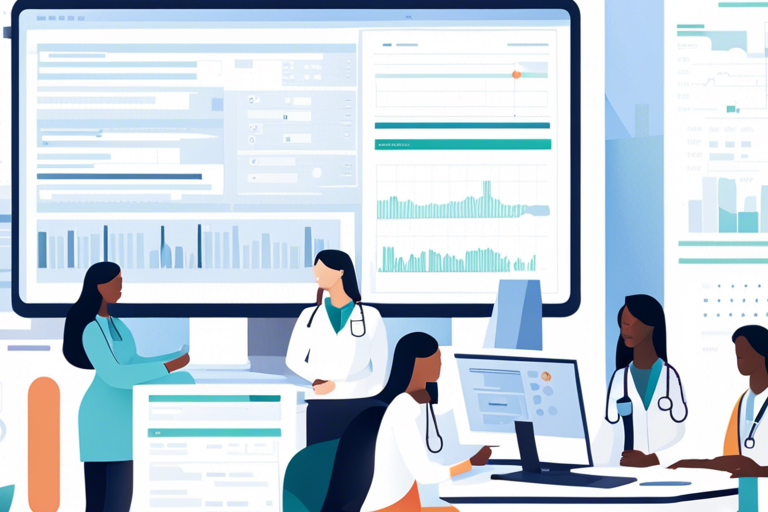 Select an Image
Select an Image
**6. Streamlining Administrative Tasks with EHR Software**
In today’s fast-paced healthcare environment, small medical practices are constantly looking for ways to streamline administrative tasks to improve overall efficiency and enhance patient care. One of the most effective solutions that can help achieve this goal is implementing Electronic Health Record (EHR) software.
**Benefits of Using EHR Software:**
1. **Automating Data Entry:** By utilizing EHR software, medical professionals can significantly reduce the time spent on manual data entry tasks. This automation not only saves time but also minimizes the risk of errors that can occur with manual input.
2. **User-Friendly Interface:** EHR systems are designed with a focus on usability, providing healthcare professionals with an intuitive interface that facilitates easy access to patient information. This user-friendly approach enhances the clinical workflow and ensures a seamless flow of information across different departments.
3. **Improved Administrative Function:** EHR software can streamline administrative tasks such as appointment scheduling, billing, and insurance claims processing. By centralizing these functions within a single platform, medical practices can optimize their administrative processes and improve overall practice management.
**Quotes from Healthcare Professionals:**
*Dr. Smith, Family Physician*: “Implementing EHR software in my practice has revolutionized the way we handle administrative tasks. It’s been a game-changer for us in terms of efficiency and patient care.”
*Sarah, Practice Manager*: “The user-friendly interface of our EHR system has made it easier for our staff to access and update patient records, leading to better coordination of care and improved patient outcomes.”
**How EHR Software Enhances Patient Care:**
1. **Easy Access to Medical History:** With EHR software, healthcare professionals have instant access to a patient’s complete medical history, including test results, lab reports, and past treatments. This comprehensive view enables providers to make more informed clinical decisions and deliver personalized care.
2. **Customizable Templates:** EHR systems offer customizable templates that can be tailored to meet the specific needs of different medical specialties. This flexibility allows providers to document patient encounters more accurately and efficiently, leading to better patient care outcomes.
3. **Efficient Medical Billing:** EHR software simplifies the medical billing process by automating tasks such as coding, claims submission, and reimbursement tracking. This streamlining of financial workflows ensures that medical practices are properly compensated for the services they provide.
**Key takeaway**: Implementing EHR software in small medical practices can significantly streamline administrative tasks,
7. Ensuring Accuracy in Medical Information Entry
 Select an Image
Select an Image
As a healthcare professional in a small medical practice, maintaining the accuracy of medical information entry is crucial for providing optimal patient care. Let’s delve into some key strategies to ensure precision and efficiency in handling patient information within your electronic health record (EHR) system.
1. Efficient Data Entry Procedures
Setting up streamlined and standardized procedures for entering medical information into your EHR system is essential. This includes creating clear protocols for staff on how to accurately input patient data, ensuring consistency across all entries.
2. Utilizing Customizable Templates
Take advantage of customizable templates within your EHR system to tailor data entry fields to match the specific needs of your practice. This not only saves time but also minimizes errors by prompting staff to input information in a structured and organized manner.
3. Regular Staff Training and Updates
Continuous training sessions for your team on the proper data entry techniques and any software updates are vital. Keeping staff informed about any changes in data entry procedures or new features in the EHR system helps maintain accuracy and efficiency.
4. Implementing Validation Checks
Utilize built-in validation checks in your EHR system to flag potential errors during data entry. These checks can help prevent common mistakes such as incomplete patient information, duplicate entries, or incorrect coding.
5. Audit Trail Monitoring
Regularly monitor the audit trail in your EHR system to track changes made to patient records. This ensures accountability and transparency in data entry practices, allowing you to identify and rectify any inaccuracies promptly.
6. Ensuring Secure Access
Control access to patient information within the EHR system to authorized personnel only. Implementing secure login credentials and user permissions helps protect the integrity of medical data and reduces the risk of unauthorized modifications.
“Accurate medical information entry is the cornerstone of quality healthcare delivery, promoting better patient outcomes and ensuring efficient clinical workflows.”
💡 key Takeaway: Precision and efficiency in medical information entry within your EHR system are essential for delivering high-quality patient care in a small medical practice setting.
8. Integrating Lab and Test Results in EHR Systems
 Select an Image
Select an Image
****
As a healthcare professional running a small medical practice, the seamless integration of lab and test results into your Electronic Health Record (EHR) system is crucial to providing efficient and effective patient care.
**The Importance of Integration**
In a small practice setting, having lab and test results directly accessible within your EHR software eliminates the need for manual data entry and enables a more streamlined clinical workflow. This integration not only saves time but also reduces the risk of errors that can occur through manual transcription.
**Enhancing Clinical Decision-Making**
By having immediate access to patient lab results, you can make timely and informed decisions about their care. This leads to improved patient outcomes and better overall efficiency in your medical practice.
**Patient-Centric Benefits**
Patients also benefit from this integration by having easy access to their medical history, test results, and other relevant information. A patient portal integrated with the EHR system allows them to view their records, enhancing engagement and promoting better communication between the healthcare provider and the patient.
**Maximizing Administrative Efficiency**
Integrating lab and test results streamlines administrative functions, such as medical billing and coding. This reduces the administrative burden on your staff, allowing them to focus more on patient care rather than manual paperwork.
**Choosing the Right EHR System**
When selecting an EHR system for your small practice, look for features that support the seamless flow of information, including the integration of lab and test results. Opt for a user-friendly interface that allows for easy navigation and access to patient records.
**Implementing Customizable Templates**
Utilizing customizable templates within your EHR system enables you to tailor the software to fit the specific needs of your practice. This customization ensures that the system aligns with your clinical workflow and enhances the overall functionality of the EHR.
**Quote:**
*”Integrating lab and test results into your EHR system not only improves clinical decision-making but also enhances the patient experience by providing quick access to crucial medical information.”*
**Key takeaway:**
Integrating lab and test results into your EHR system is essential for small medical practices as it improves clinical decision-making, enhances patient care, and maximizes administrative efficiency, ultimately leading to better overall practice management.
9. Selecting the Right EHR Vendor for Your Practice
 Select an Image
Select an Image
The process of selecting the right Electronic Health Record (EHR) vendor for your small medical practice is crucial in optimizing your clinic’s operations and patient care services. Choosing the best EHR software involves thorough research and careful consideration to ensure the system aligns with your practice’s specific needs and goals.
1. **Assess Your Practice’s Requirements (small medical practice, ehr software, best emr system)**
Before diving into the selection process, it’s essential to identify the unique requirements of your small medical practice. Consider factors such as the size of your practice, patient volume, clinical workflow, administrative functions, and desired features like a patient portal, customizable templates, and seamless integration with your existing systems.
2. **Evaluate User-Friendly Interfaces (user-friendly interface)**
A key aspect of selecting the right EHR vendor is ensuring that the software offers a user-friendly interface. The system should be intuitive and easy to navigate for healthcare professionals, enabling efficient documentation and access to patient information without the burden of complex, time-consuming manual data entry.
3. **Prioritize Patient Care and Access (patient care, easy access, better patient care)**
The chosen EHR system should enhance the overall efficiency of your clinic’s operations while prioritizing patient care. Look for features that enable easy access to patient medical history, test results, lab reports, and other crucial information to deliver better care and improve patient outcomes.
4. **Consider Integration and Support (ehr vendor, electronic health record system)**
When selecting an EHR vendor, consider their track record in providing reliable support, training, and seamless integration with practice management software and other systems. Ensure that the vendor’s EHR system aligns with the clinical workflow of your practice and offers the necessary functionalities to streamline administrative tasks such as medical billing and patient record management.
In the words of Valant’s EHR team, “Choosing the right EHR system is a strategic investment in your practice’s long-term success. Ensuring the system meets your practice’s needs and enhances the seamless flow of information is essential for realizing the full potential of your clinic.”
💡 key Takeaway: Selecting the right EHR vendor for your small medical practice involves assessing your practice’s requirements, prioritizing patient care and easy access to information, evaluating user-friendly interfaces, and considering integration and support.
10. Maximizing the Potential of Practice Management Software
 Select an Image
Select an Image
**10. Maximizing the Potential of Practice Management Software**
Practice management software plays a crucial role in streamlining operations and enhancing efficiency in a small medical practice. By utilizing the full potential of this software, healthcare professionals can optimize patient care, administrative functions, and overall workflow.
**Benefits of Seamless Information Flow**
Practice management software facilitates the seamless flow of information across various departments.
This ensures that patient information, medical histories, test results, and other critical data are easily accessible to healthcare providers.
A user-friendly interface eliminates the need for manual data entry, saving time and reducing errors.
**Enhancing Patient Care**
The right practice management software can significantly improve patient care by providing quick access to vital information.
Customizable templates enable tailored documentation and personalized care plans for patients.
Efficient handling of patient records and lab results leads to better decision-making by healthcare professionals.
**Optimizing Administrative Tasks**
By automating administrative tasks, practice management software frees up valuable time for healthcare professionals to focus on patient care.
Features such as medical billing integration streamline financial processes and ensure accurate revenue management.
The system’s efficiency enhances the overall productivity of the medical practice.
**Selecting the Best Practice Management Software**
When choosing a practice management software, consider factors such as ease of use, integration capabilities, and support for specific specialties like physical therapy or mental health.
Valant’s EHR is an example of user-friendly software that caters to the unique needs of small medical practices, offering a seamless experience for healthcare providers.
*”Optimizing practice management software is essential for small medical practices to enhance patient care, optimize administrative functions, and ensure overall efficiency in daily operations.”*
**Key takeaway:** Maximizing the potential of practice management software is crucial for small medical practices to improve patient care, streamline administrative tasks, and boost overall productivity.
11. Tailoring EHR Systems for Specialty Practices
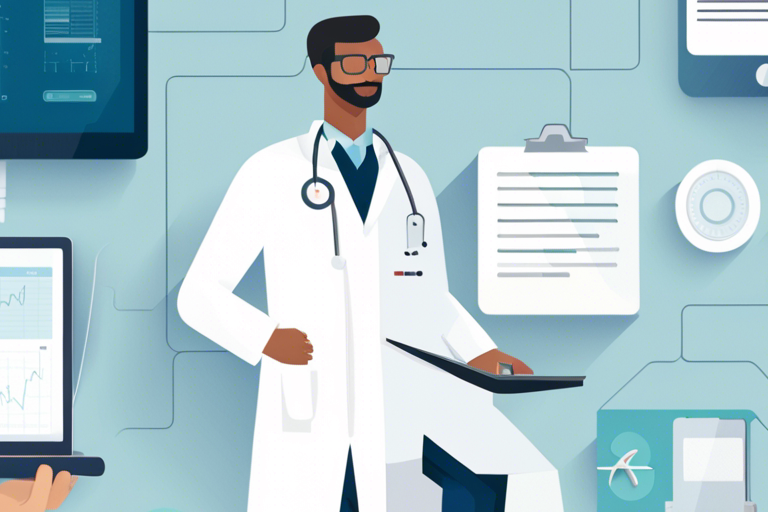 Select an Image
Select an Image
When considering Electronic Health Record (EHR) systems for small medical practices, customization for specialty practices is crucial to optimize efficiency and patient care. Tailoring your EHR system to meet the specific needs of your specialty practice can significantly impact the overall workflow and patient outcomes. Let’s delve into how you can effectively tailor EHR systems for specialty practices:
1. **Understanding Specialty-Specific Requirements**: Identify the unique requirements of your specialty practice, such as clinical workflows, documentation needs, and specific data elements crucial for providing specialized care.
2. **Customizable Templates and Clinical Workflows**: Choose an EHR system that offers customizable templates and clinical workflows tailored to your specialty. This allows for streamlined documentation and ensures that essential information is captured efficiently.
3. **Enhanced Patient Information Management**: Ensure that the EHR system you select enables comprehensive patient information management, including the ability to track and analyze specialty-specific data points important for diagnosis and treatment.
4. **Intuitive User Interface for Better Patient Care**: Opt for an EHR system with a user-friendly interface that supports easy access to patient history, test results, lab reports, and other pertinent medical information. A seamless flow of information enhances the quality of care delivered to patients.
5. **Efficient Administrative Functions**: Look for features that automate repetitive administrative tasks, such as appointment scheduling, billing, and claims processing. This reduces manual data entry and allows healthcare professionals to focus more on patient care.
6. **Integration with Practice Management Software**: Ensure seamless integration between your EHR system and practice management software for a cohesive and efficient workflow. This integration streamlines processes and optimizes overall efficiency within the practice.
“In specialty practices, the ability to customize and tailor your EHR system is key to delivering specialized care efficiently and effectively.”
**
💡 key Takeaway: ** Tailoring EHR systems to meet the unique requirements of specialty practices is essential for optimizing workflows, improving patient care, and enhancing overall practice efficiency.
12. Embracing Valant’s EHR Solution for Small Practices
 Select an Image
Select an Image
Heading: Embracing Valant’s EHR Solution for Small Practices
Subheading: Introduction to Valant’s EHR System
Valant’s EHR software is a game-changer for small medical practices looking to streamline their operations and enhance patient care. As an expert in the healthcare industry, I can attest to the significant benefits of implementing Valant’s EHR solution for small practices. With its user-friendly interface and comprehensive features, Valant’s EHR system offers a seamless flow of information, ultimately leading to improved efficiency and better patient outcomes.
Subheading: Key Features and Benefits
Customizable Templates: Valant’s EHR system provides small practices with customizable templates that cater to their specific needs, allowing for efficient documentation and easy access to patient information.
Clinical Workflow Optimization: By automating administrative functions and reducing manual data entry, Valant’s EHR solution streamlines clinical workflows, saving time and increasing overall efficiency.
Enhanced Patient Care: With Valant’s EHR system, healthcare professionals can access patient records, medical history, test results, lab reports, and more in one centralized location, enabling them to provide better and more personalized care to patients.
Subheading: Testimonials
“We implemented Valant’s EHR software in our small practice, and the impact has been tremendous. Our team now operates more cohesively, and our patients have noticed the improved quality of care.” Dr. Smith, Small Medical Practice Owner
💡 key Takeaway: Embracing Valant’s EHR solution can revolutionize the way small practices manage patient information, optimize clinical workflows, and enhance patient care.
Conclusion
Conclusion: In conclusion, optimizing your clinic with small practice EMR software is essential for streamlining operations and enhancing patient care. With the right tools in place, your practice can operate more efficiently, saving time and resources while improving overall patient satisfaction. By implementing a robust EMR system, you can securely store patient data, simplify scheduling, and facilitate better communication among healthcare providers. Furthermore, staying up-to-date with the latest advancements in EMR technology is crucial to ensure your clinic remains competitive and compliant with industry standards. As a trusted advisor in healthcare technology, we are here to guide you through the process of selecting the best EMR software for your small practice. Take the next step towards optimizing your clinic today and experience the transformative benefits firsthand. Ready
FAQ
What features should I look for in an EHR system?
When choosing an EHR system for your small practice, some important features to consider include customizable templates, secure patient portal, appointment scheduling, e-prescribing, and integration with billing and coding. It is also important to ensure that the system is HIPAA compliant and offers good customer support.
How does Valant’s EHR solution cater to the needs of small practices?
Valant’s EHR solution offers customizable templates and workflows specifically designed for small practices. This allows for a more efficient and tailored approach to patient care, as well as streamlining administrative tasks. The software also includes features such as appointment scheduling, billing and financial management, and secure patient portals, making it a comprehensive solution for small practices. Additionally, Valant offers training and support to help small practices maximize the benefits of their EHR system.
What is EHR software?
EHR (Electronic Health Record) software is a digital system that stores and manages patient medical records, including demographic information, medical history, diagnoses, medications, and test results. It allows healthcare providers to access and update patient information in real-time, improving communication and coordination of care. EHR software also offers features such as e-prescribing, scheduling, and billing, making it a comprehensive solution for managing a small practice.
Can EHR software be customized for different specialties?
Yes, EHR (Electronic Health Record) software can be customized for different specialties. Many EHR vendors offer specialty-specific templates and features that can be tailored to meet the specific needs and workflows of different types of medical practices. This allows for a more streamlined and efficient use of the software for different specialties, such as primary care, pediatrics, or dermatology. Additionally, some EHR systems allow for customization and personalization by individual practitioners within a practice, allowing them to tailor the software to their specific needs and preferences.
How do I choose the right EHR vendor for my practice?
Choosing the right Electronic Health Record (EHR) vendor for your small practice can be a daunting task. Here are some tips to help you make the best decision: Determine your specific needs and goals: Every practice is different, so it’s important to understand what features and capabilities you require in an EHR system. Make a list of your must-haves and nice-to-haves to guide your search. Research vendors: Look into different EHR vendors and their reputations in the industry. Consider factors such as customer reviews, pricing, and customer support. Request demos and trials: Most EHR vendors offer demos and free trials for their software. Take advantage of these to get a feel for the system and see if it meets your needs. 4.
How does EHR software benefit small medical practices?
EHR software can benefit small medical practices in several ways, such as streamlining administrative tasks, improving patient care and communication, reducing errors, and increasing efficiency. By automating tasks like appointment scheduling, billing, and patient record-keeping, EHR software can save time and resources for small practices. It also allows for better coordination and communication between healthcare providers, leading to improved patient outcomes. Additionally, EHR software can help reduce errors and improve data accuracy, leading to better decision-making and improved patient satisfaction. Overall, EHR software can help small medical practices run more efficiently and effectively.

